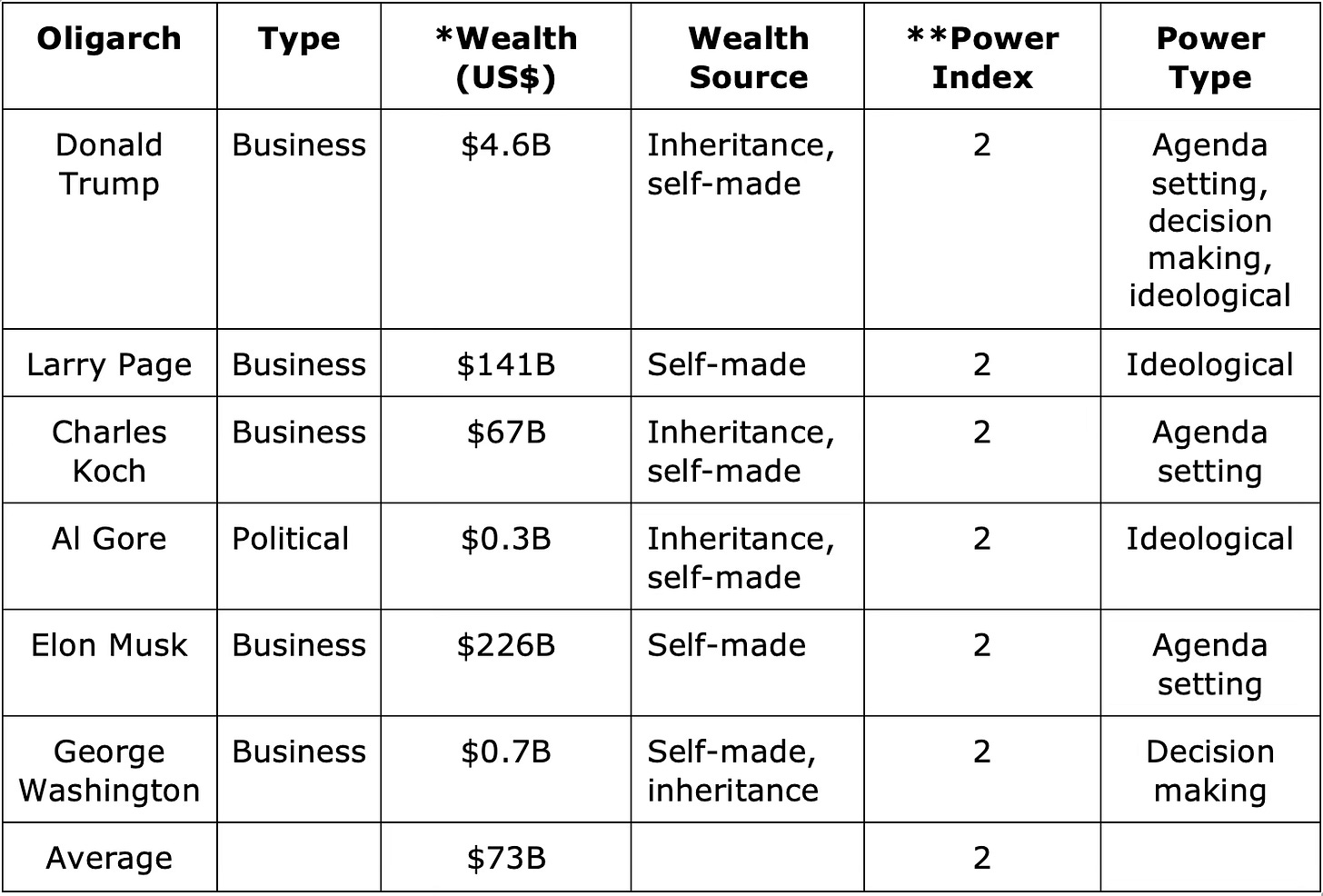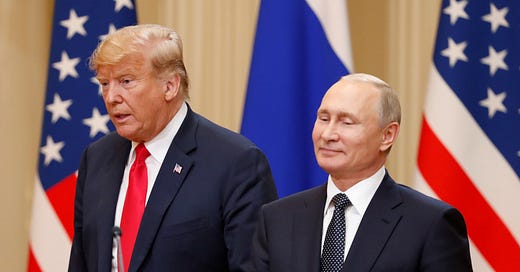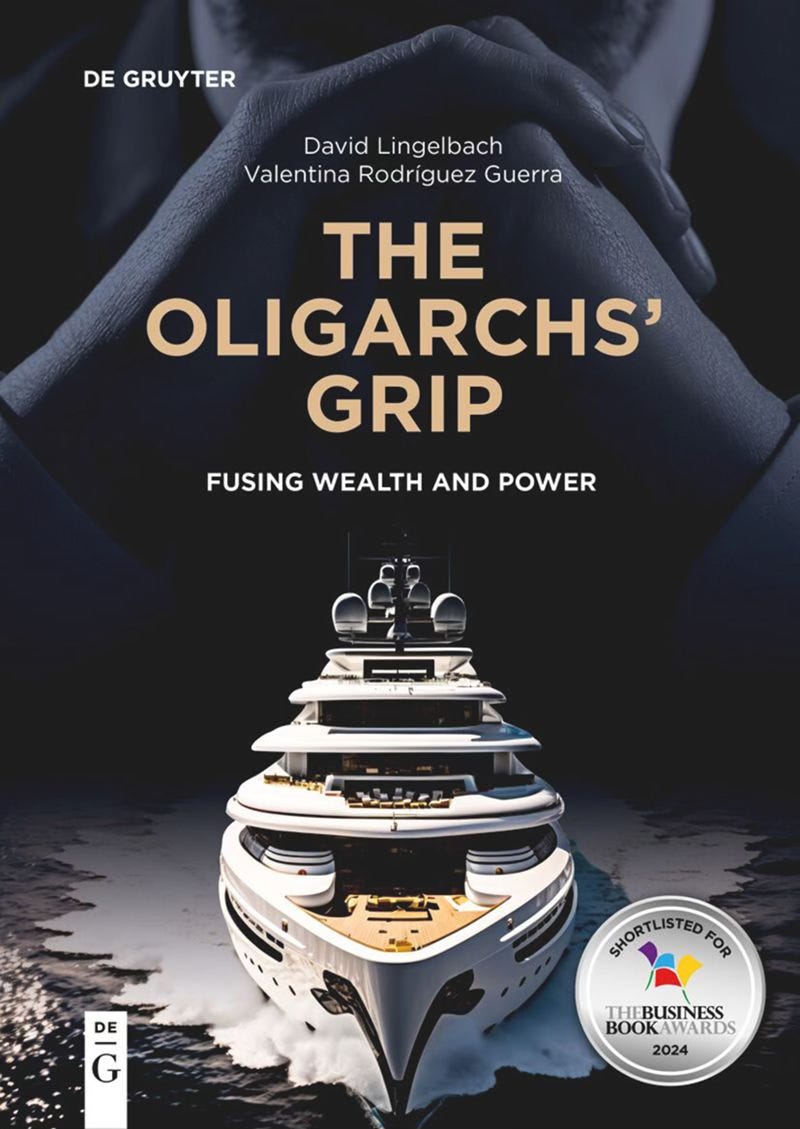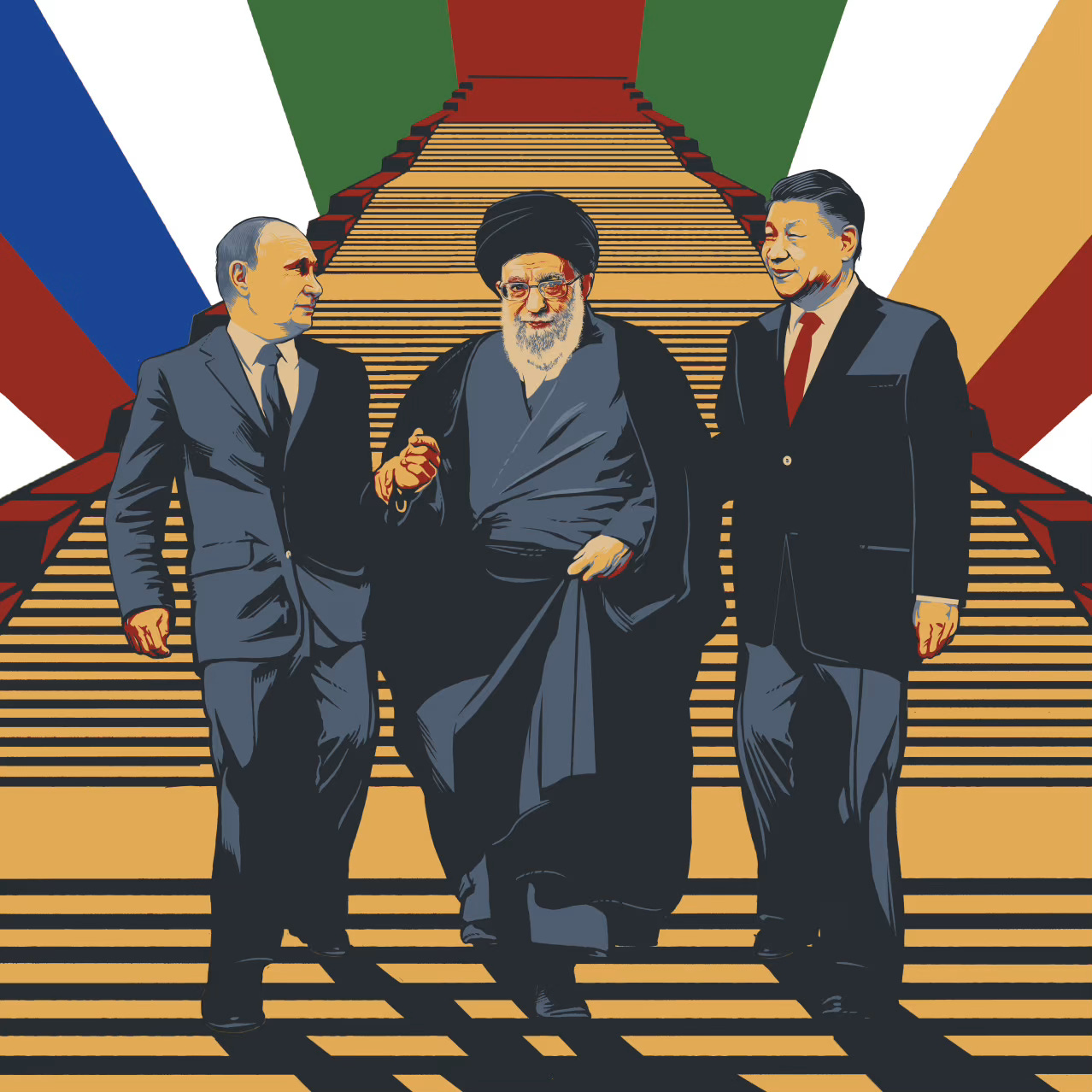Trump the Oligarch in Context - Eurasian Impact
MT799 Authenticated | Independent Contributors Column
Dear Subscribers,
Welcome to MT799 Authenticated, Barbershop Whispers….Russia's (BWR) independent contributors column, which is published on Wednesdays from time to time. The independent contributors are seasoned experts in Russian geopolitics, domestic politics, and business.
The views of MT799 contributors are their views and not necessarily the opinions of BWR or e8Q Technologies LLC.
Publisher’s Note:
The US Presidential elections will have a global geopolitical impact regardless of who wins in November 2024. Given Donald Trump’s participation in the presidential race, we invited the two foremost global experts and authors on oligarchs to write about Donald Trump, the oligarch, and the impact on Eurasia.
About the Authors:
David Lingelbach is a professor of entrepreneurship at The University of Baltimore. He lived and worked in Russia from 1994 to 1999, where he served as head of Bank of America’s businesses in the former Soviet Union and worked with Vladimir Putin.
Valentina Rodríguez Guerra is an author, oligarch researcher, and Ph.D. student at Facultad de Administración, Universidad de los Andes.
Their book, The Oligarchs’ Grip: Fusing Wealth and Power, was published by De Gruyter and was shortlisted for a Business Book Award and a Goody Business Book Award. To study this important phenomenon, they have established The Center for the Study of Oligarchs.
Trump the Oligarch in Context - Eurasian Impact
Oligarch Defined | Trump American & Global Peers | Trump and Eurasia
Our business is the study of oligarchs, but we have been reluctant to study the oligarch, Donald Trump. Although we referenced him in The Oligarchs’ Grip, we felt he was too much of a distraction. This is no longer the case.
Given Trump’s selection as the Republican Party’s (GOP) nominee for US president in July 2024, a more formal assessment of his potential impact and policies is warranted.
To be clear, we are not Trump experts. Others–mainly journalists–have studied him far longer and continue to offer important insights. However, we assert that, like master oligarchs everywhere, Trump is a chaos monkey. He thrives on uncertainty and seeks to create more of it whenever possible.
In this piece, we put Trump in context as an oligarch, comparing and contrasting him with other oligarchs, much as we did in an earlier piece on the Georgian oligarch, Bidzina Ivanishvili (Making Sense of Bidzina Ivanishvili). We do this by comparing Trump to two cohorts:
Other American oligarchs we have studied closely.
Comparable oligarchs in other countries.
Although we think it’s uncontroversial to say so, Trump meets our academic and pragmatic definition of an oligarch. Oligarchs secure and reproduce wealth and power, then use one to acquire the other. Oligarchs come in two varieties:
Business
Political
Business oligarchs acquire wealth first, then exploit it to acquire political power. Political oligarchs move in the opposite direction, first gaining political power and then exploiting their position to acquire economic power.
Oligarchs acquire wealth in three ways:
Self-made.
Inheritance.
Political and family connections.
Their power is of three types:
Decision-making (typically by holding political office).
Agenda-setting (often through funding or working behind the scenes), or
Ideological, shaping the way we think and act.
As we study oligarchs, we have developed a quantitative methodology called the Lingelbach-Rodríguez Oligarch Index (LROI). It is a simple quantitative measure of an oligarch’s effectiveness, enabling us to easily compare them. It comprises four equally weighted metrics–wealth, power, capacity (defined as the fit with the Lingelbach-Rodríguez Model), and impact–normalized on a 0-10 scale. The oligarchs we studied closely in our book had an average LROI of 5.1.
Oligarch Trump and His American Peers
We begin by comparing Trump with five American oligarchs we’ve studied closely for our last book and our next one, The Oligarchs of the Americas: Charles Koch, Larry Page, Al Gore, Elon Musk, and George Washington:

Trump is far below average in wealth but average in political power compared to these peers. Like them, his wealth has been made through a combination of inheritance and self-made efforts. However, unlike his peers, Trump’s power is broad and encompassing all three power types.
Trump in the Global Context
Next, we compare Trump with oligarchs from select parts of the world. We know most of them well because we wrote about them at length in our book:
This comparison suggests that Trump is below average in wealth and a bit above average in political power. However, those results are somewhat distorted by two outliers: Hariri on wealth and Putin on power. His wealth is less based on connections than these peers, and, as with other peers, his power is more broad-based.
Overall, Trump is below average in wealth compared to these cohort members but a bit above average in power. Trump is an example of a business oligarch who has used his wealth to reach a higher relative political power level. While he is not the most consequential oligarch in this peer group–Putin, Page, and Koch would rank highest in our minds—Trump is an important second-division oligarch who could yet gain more power.
Oligarchs: Trump and Ivanishvili
There are parallels between Trump and Ivanishvili, whom we wrote about in June. Both are business oligarchs, exploiting their economic power to create political power. It is also typical of oligarch modus operandi as they exploit wealth or political power to enhance the other. The following table provides a brief comparison:

This table illustrates several comparisons between Trump and Ivanishvili. First, and most starkly, Ivanishvili’s wealth dominates his home country’s economy in a way that Trump’s wealth never could. Trump is more powerful than Ivanishvili, but Ivanishvili is wealthier.
Like Ivanishvili, Trump has seized control of a political party. Lara Trump, Donald Trump’s daughter-in-law, is now the Co-Chair of the GOP, and he wields enormous power over the party, campaign funding of GOP candidates, and congressional legislation. For example, the bipartisan immigration bill put on the floor during the summer failed because Trump pressured legislators not to pass it. He wanted it to be a campaign issue, and now it is just that.
We have seen Ivanishvili wield similar power in Georgia. He made his money in Russia and has used that to create a formidable power base and political party in Georgia. His support for the controversial “foreign agent bill” passed with the full support of the Georgian Dream party, a party in which he has complete control.
Trump and Ivanishvili also have similarly murky linkages to one of the most consequential oligarchs today: Vladimir Putin. The extent of the linkages will probably never be proven. But there are some breadcrumbs. For example, in 2012 Trump partnered with Aras Agalarov, a Putin-connected oligarch, to host his Miss Universe pageant in Moscow. This event required Putin’s approval. For Trump, it was an international achievement giving him access to Putin. Likewise, beginning in 2006 Ivanishvili sold many of his Russian assets and is believed to have exported the proceeds. These transactions are likely to have required Putin’s OK.
The Eurasia Impact
Looking ahead, how would another Trump presidency impact Eurasia? We see the following possibilities. First, increased US oil and gas production would adversely impact Eurasian export revenues by decreasing prices.

Second, we interpret Trump’s complex relationship with Putin as creating opportunities for Putin to further exploit Trump’s explicit admiration for him. Third, Trump’s isolationist policies may create a more arms-length stance on Ukraine and NATO, further distancing the US from Eurasian affairs. This may result in the region being dominated by the emerging international order being shaped by China, Türkiye, Russia, Iran, North Korea, Saudi Arabia, and others.
None of this is particularly controversial. What is likely to be controversial is our final point. Trump may do a second Nixon, averting rising conflict with China by coming to terms with Xi Jinping. He may have learned something from his abortive overture to North Korea’s Kim. And we also believe that he may be increasingly desperate to salvage his tattered reputation. Like Putin, Trump may be looking to lock in his legacy during a second term in office. This could be one way to do so.
Study the oligarchs, who are masters of uncertainty. Study the chaos they create deliberately–as Putin has done with the invasion of Ukraine and Trump has done in the US–and then how they take advantage of the opportunities that the chaos creates for them. For example, Putin’s actions in Ukraine have consolidated his power and likely enhanced his wealth. Trump has become steadily wealthier and more powerful despite the unviable business model of his latest venture, Truth Social, and the greater competition he now faces from Kamala Harris. Search interest in Trump is at its highest level since the January 6th attempted insurrection. That interest can be monetized and translated into power.
As researchers who have studied oligarchs for more than thirty years, we try to stay independent and above the fray. We often compare oligarchs to other distasteful phenomena, such as cancer or pornography, or to the other grand challenges of our day, such as global warming, AI, or nuclear conflict.
But, as we said in our book, Trump is a master oligarch. Put aside your feelings and learn from him.
Vol 2, No 40 - BWR (MT799) 28.08.2024
Thank you for reading “Barbershop Whispers....Russia” written by Adam A Blanco! “Barbershop Whispers…Russia” is a product of e8Q Technologies, a consultancy with insights on all things Eurasia. Subscribe for free to receive new posts.










Hi Deb. Great to hear from you here!
Wonderful question. Like all effective oligarchs, Trump is a master of uncertainty. The strategies he employs are the same ones we documented in the book that Valentina Rodríguez Guerra and I wrote: The Oligarchs' Grip. Specifically, he is entrepreneurial, he employs a friends with benefits approach to alliances, he has waited for his main chances, and he is secretive and stealthy, hiding in plain sight. Despite all that has been written about Trump, we still don't fully grasp what he's all about and why his wealth and power have remained relatively robust since 2016 at least.
Anyone--oligarch or not--can apply these strategies to gain greater control over uncertainty.
Hope that is useful!
Could you be more specific in terms of your final comment, "But, as we said in our book, Trump is a master oligarch. Put aside your feelings and learn from him."?